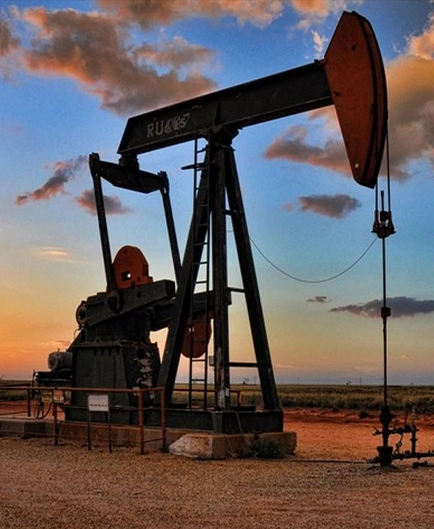- Afrikaans
- Albanian
- Amharic
- Arabic
- Armenian
- Azerbaijani
- Basque
- Belarusian
- Bengali
- Bosnian
- Bulgarian
- Catalan
- Cebuano
- Corsican
- Croatian
- Czech
- Danish
- Dutch
- English
- Esperanto
- Estonian
- Finnish
- French
- Frisian
- Galician
- Georgian
- German
- Greek
- Gujarati
- Haitian Creole
- hausa
- hawaiian
- Hebrew
- Hindi
- Miao
- Hungarian
- Icelandic
- igbo
- Indonesian
- irish
- Italian
- Japanese
- Javanese
- Kannada
- kazakh
- Khmer
- Rwandese
- Korean
- Kurdish
- Kyrgyz
- Lao
- Latin
- Latvian
- Lithuanian
- Luxembourgish
- Macedonian
- Malgashi
- Malay
- Malayalam
- Maltese
- Maori
- Marathi
- Mongolian
- Myanmar
- Nepali
- Norwegian
- Norwegian
- Occitan
- Pashto
- Persian
- Polish
- Portuguese
- Punjabi
- Romanian
- Russian
- Samoan
- Scottish Gaelic
- Serbian
- Sesotho
- Shona
- Sindhi
- Sinhala
- Slovak
- Slovenian
- Somali
- Spanish
- Sundanese
- Swahili
- Swedish
- Tagalog
- Tajik
- Tamil
- Tatar
- Telugu
- Thai
- Turkish
- Turkmen
- Ukrainian
- Urdu
- Uighur
- Uzbek
- Vietnamese
- Welsh
- Bantu
- Yiddish
- Yoruba
- Zulu
tubing collar
Understanding the Importance of Tubing Collars in Oil and Gas Operations
In the ever-evolving landscape of the oil and gas industry, efficiency and reliability are paramount. One of the critical components that contribute to the success of drilling operations is the tubing collar. This seemingly unassuming piece of equipment plays a vital role in ensuring the integrity and functionality of the tubing strings used in oil and gas wells. Understanding tubing collars—what they are, how they work, and their significance—can provide valuable insights into their role in the industry.
What Are Tubing Collars?
A tubing collar is a critical component used in the assembly of tubing strings that are inserted into oil and gas wells for the extraction of hydrocarbons. These collars are designed to join sections of casing and tubing while providing structural support and pressure containment. Typically made of high-strength steel, tubing collars are engineered to withstand extreme conditions, including high pressures and harsh chemical environments.
The design of a tubing collar often includes features such as threads for secure connections, a pressure-bearing profile, and provisions for sealing to prevent leakage. These features ensure that the collars fit tightly and operate effectively within the well, contributing to the overall stability and safety of the operation.
Functions of Tubing Collars
Tubing collars serve several essential functions in oil and gas operations
1. Connection and Support Tubing collars facilitate the connection of different sections of tubing, enabling the creation of a continuous string that extends to the well's production zone. This structural integrity is vital for maintaining the desired flow rates and pressure levels during extraction.
tubing collar

2. Pressure Management One of the primary responsibilities of tubing collars is to manage pressure within the well. They create a barrier that helps contain high-pressure fluids and gases, preventing leaks that could jeopardize the operation and pose safety risks. A well-designed collar can withstand significant pressure differentials, ensuring safe and efficient operations.
3. Sealing Capability Tubing collars are engineered with sealing mechanisms that prevent the ingress of unwanted fluids and gases into the production zone. Effective sealing is crucial for maintaining the integrity of the wellbore and ensuring that production occurs without contamination.
4. Facilitation of Maintenance In some cases, tubing collars provide access points for maintenance and workover operations. This accessibility allows operators to perform necessary servicing without having to remove the entire tubing string, thus saving time and costs during critical maintenance windows.
Challenges and Innovations
While tubing collars are integral to drilling operations, they are not without challenges. Harsh environmental conditions, such as high temperatures, corrosive environments, and mechanical stresses, can impact the performance and lifespan of these components. As a result, the industry has focused on innovations in materials and designs to enhance the durability and reliability of tubing collars.
Recent advancements include the development of collars made from corrosion-resistant alloys and the integration of advanced sealing technologies that enhance performance under difficult conditions. Furthermore, the application of real-time monitoring systems enables operators to assess the condition of tubing collars continuously, allowing for proactive maintenance and reducing the risks associated with failure.
Conclusion
In summary, tubing collars are a critical component of oil and gas operations, providing support, pressure management, sealing capabilities, and facilitating maintenance. Their significance cannot be overstated; they contribute to the safety and efficiency of drilling and production processes. As the industry faces new challenges, innovations in tubing collar design and materials will continue to play a pivotal role in ensuring the integrity of well operations. Understanding tubing collars is essential for professionals within the oil and gas sector, as they are key to enabling efficient and safe hydrocarbon extraction. With ongoing advancements and a focus on reliability, tubing collars will remain a cornerstone of successful oil and gas operations for years to come.
-
Tubing Pup Joints: Essential Components for Oil and Gas OperationsNewsJul.10,2025
-
Pup Joints: Essential Components for Reliable Drilling OperationsNewsJul.10,2025
-
Pipe Couplings: Connecting Your World EfficientlyNewsJul.10,2025
-
Mastering Oilfield Operations with Quality Tubing and CasingNewsJul.10,2025
-
High-Quality Casing Couplings for Every NeedNewsJul.10,2025
-
Boost Your Drilling Efficiency with Premium Crossover Tools & Seating NipplesNewsJul.10,2025







